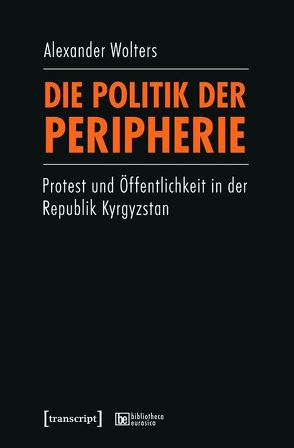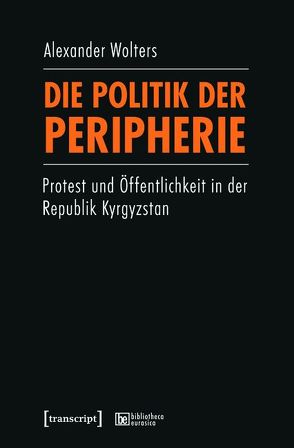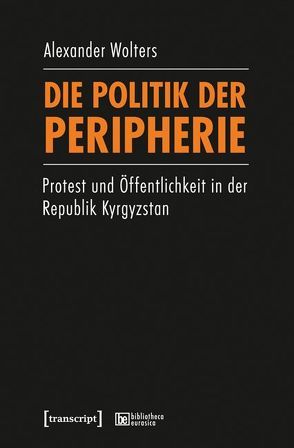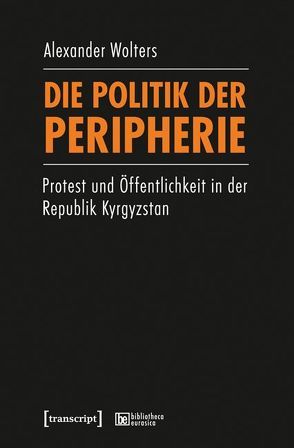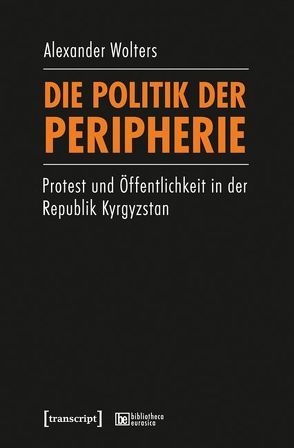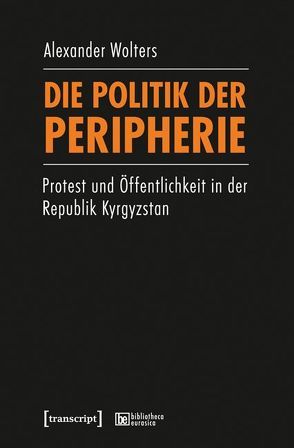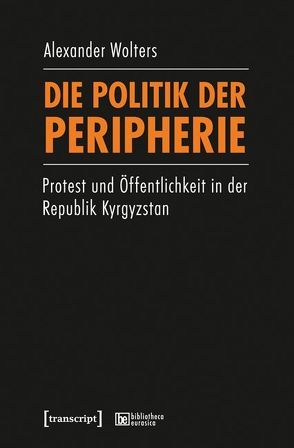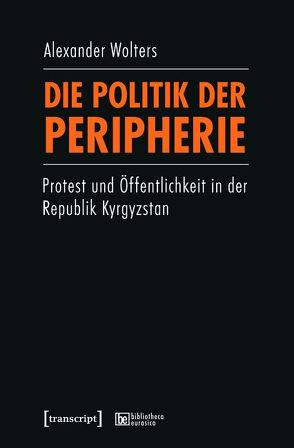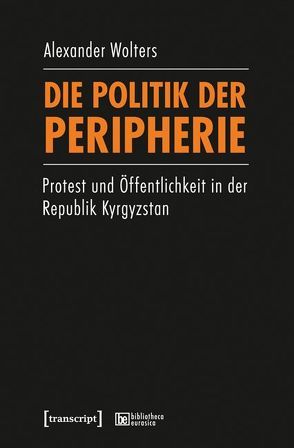
First interdisciplinary study composed by the Austrian Historian Ferdinand Hennerbichler (*1946), backed up by leading Iranist Gernot L. Windfuhr, Ann Arbor, Michigan, USA, and renowned DNA Genealogist Anatole A. Klyosov, Newton, Massachusetts, USA, concluding: forefathers of Kurds were for the most part ethnically made up of Neolithic aboriginal Northern Fertile Crescent peoples and of Indoiranian speaking emigrating elites from Central Asia. According to recent research of Palaeo/Archaeo-genetics and DNA Genealogy, forefathers of Kurds were in their earliest traceable origins mainly descendants of Near Eastern and Eurasian indigenous aboriginal peoples, predominantly oldest Neolithic farmers and shepherds who cultivated areas of the Northern Fertile Crescent ca. 10,000-5,000 B.C.E. During the last millennia B.C.E. these aboriginal Neolithic forefathers of Kurds were linguistically Indoiranianized by emigrating militarily organized elites from Central Asia in two waves: between 2,200/2,000-1,600 B.C.E., via the Russian plains into Eastern Anatolia, Northern Mesopotamia and Zagros mountain regions, and ca. 800-600 B.C.E., mainly via the Iranian Plateau into Northwest Iran of today (Anatole Klyosov). This waves of migrations contributed to multi-ethno-cultural societies of Northern Fertile Crescent aboriginal forefathers of Kurds and of militarily organized elites who came from central Asia and who obviously imposed Old-Iranian on the indigenous populations from territories of the Northwest-Iran of today. Previously, Kurds spoke an unknown assumed Proto-Non-Iranian language. Hurritian played a dominant role in Kurdistan during ca. 1,000 500 B.C.E. (Ran Zadok). The first stages of the language of Iranianized Kurds could go back to the pre-Median or pre-Achaemenid periods (Gernot Windfuhr). An earlier influence of Old-Indo-Aryan-speakers in the ancient kingdom of Mitanni during the 2nd millennium B.C.E. is disputed. The word Kurd itself could mean mountain people, frequently complemented by various attributive expressions for war-like mountaineers. Oldest roots of the term can be traced back to the Sumerian assumed word stem kur denoting various mountain peoples and lands. In cuneiform sources kur-related terms are frequently used for mountaineers who inhabited ancestral homelands, which traditionally encompassed areas stretching from Eastern Anatolia via Northern Mesopotamia to Zagros regions and eastwards into Northwest-Iran of today. Also, since the 23rd century B.C.E. existed a steady but fragile, waxing and waning continuity of kur-stem term labels characterizing various mountain people. Some of them can be convincingly and in continuity allocated to descendants of aboriginal forefathers of Kurds. In conclusion, this new book tries to prove that Kurds are an independent autochthonous people mainly from areas outside of Iran of today. The published results triggered a lively on-going scientific discussion. Reactions so far are mostly positive.
Aktualisiert: 2023-07-01
> findR *

First interdisciplinary study composed by the Austrian Historian Ferdinand Hennerbichler (*1946), backed up by leading Iranist Gernot L. Windfuhr, Ann Arbor, Michigan, USA, and renowned DNA Genealogist Anatole A. Klyosov, Newton, Massachusetts, USA, concluding: forefathers of Kurds were for the most part ethnically made up of Neolithic aboriginal Northern Fertile Crescent peoples and of Indoiranian speaking emigrating elites from Central Asia. According to recent research of Palaeo/Archaeo-genetics and DNA Genealogy, forefathers of Kurds were in their earliest traceable origins mainly descendants of Near Eastern and Eurasian indigenous aboriginal peoples, predominantly oldest Neolithic farmers and shepherds who cultivated areas of the Northern Fertile Crescent ca. 10,000-5,000 B.C.E. During the last millennia B.C.E. these aboriginal Neolithic forefathers of Kurds were linguistically Indoiranianized by emigrating militarily organized elites from Central Asia in two waves: between 2,200/2,000-1,600 B.C.E., via the Russian plains into Eastern Anatolia, Northern Mesopotamia and Zagros mountain regions, and ca. 800-600 B.C.E., mainly via the Iranian Plateau into Northwest Iran of today (Anatole Klyosov). This waves of migrations contributed to multi-ethno-cultural societies of Northern Fertile Crescent aboriginal forefathers of Kurds and of militarily organized elites who came from central Asia and who obviously imposed Old-Iranian on the indigenous populations from territories of the Northwest-Iran of today. Previously, Kurds spoke an unknown assumed Proto-Non-Iranian language. Hurritian played a dominant role in Kurdistan during ca. 1,000 500 B.C.E. (Ran Zadok). The first stages of the language of Iranianized Kurds could go back to the pre-Median or pre-Achaemenid periods (Gernot Windfuhr). An earlier influence of Old-Indo-Aryan-speakers in the ancient kingdom of Mitanni during the 2nd millennium B.C.E. is disputed. The word Kurd itself could mean mountain people, frequently complemented by various attributive expressions for war-like mountaineers. Oldest roots of the term can be traced back to the Sumerian assumed word stem kur denoting various mountain peoples and lands. In cuneiform sources kur-related terms are frequently used for mountaineers who inhabited ancestral homelands, which traditionally encompassed areas stretching from Eastern Anatolia via Northern Mesopotamia to Zagros regions and eastwards into Northwest-Iran of today. Also, since the 23rd century B.C.E. existed a steady but fragile, waxing and waning continuity of kur-stem term labels characterizing various mountain people. Some of them can be convincingly and in continuity allocated to descendants of aboriginal forefathers of Kurds. In conclusion, this new book tries to prove that Kurds are an independent autochthonous people mainly from areas outside of Iran of today. The published results triggered a lively on-going scientific discussion. Reactions so far are mostly positive.
Aktualisiert: 2023-07-01
> findR *

First interdisciplinary study composed by the Austrian Historian Ferdinand Hennerbichler (*1946), backed up by leading Iranist Gernot L. Windfuhr, Ann Arbor, Michigan, USA, and renowned DNA Genealogist Anatole A. Klyosov, Newton, Massachusetts, USA, concluding: forefathers of Kurds were for the most part ethnically made up of Neolithic aboriginal Northern Fertile Crescent peoples and of Indoiranian speaking emigrating elites from Central Asia. According to recent research of Palaeo/Archaeo-genetics and DNA Genealogy, forefathers of Kurds were in their earliest traceable origins mainly descendants of Near Eastern and Eurasian indigenous aboriginal peoples, predominantly oldest Neolithic farmers and shepherds who cultivated areas of the Northern Fertile Crescent ca. 10,000-5,000 B.C.E. During the last millennia B.C.E. these aboriginal Neolithic forefathers of Kurds were linguistically Indoiranianized by emigrating militarily organized elites from Central Asia in two waves: between 2,200/2,000-1,600 B.C.E., via the Russian plains into Eastern Anatolia, Northern Mesopotamia and Zagros mountain regions, and ca. 800-600 B.C.E., mainly via the Iranian Plateau into Northwest Iran of today (Anatole Klyosov). This waves of migrations contributed to multi-ethno-cultural societies of Northern Fertile Crescent aboriginal forefathers of Kurds and of militarily organized elites who came from central Asia and who obviously imposed Old-Iranian on the indigenous populations from territories of the Northwest-Iran of today. Previously, Kurds spoke an unknown assumed Proto-Non-Iranian language. Hurritian played a dominant role in Kurdistan during ca. 1,000 500 B.C.E. (Ran Zadok). The first stages of the language of Iranianized Kurds could go back to the pre-Median or pre-Achaemenid periods (Gernot Windfuhr). An earlier influence of Old-Indo-Aryan-speakers in the ancient kingdom of Mitanni during the 2nd millennium B.C.E. is disputed. The word Kurd itself could mean mountain people, frequently complemented by various attributive expressions for war-like mountaineers. Oldest roots of the term can be traced back to the Sumerian assumed word stem kur denoting various mountain peoples and lands. In cuneiform sources kur-related terms are frequently used for mountaineers who inhabited ancestral homelands, which traditionally encompassed areas stretching from Eastern Anatolia via Northern Mesopotamia to Zagros regions and eastwards into Northwest-Iran of today. Also, since the 23rd century B.C.E. existed a steady but fragile, waxing and waning continuity of kur-stem term labels characterizing various mountain people. Some of them can be convincingly and in continuity allocated to descendants of aboriginal forefathers of Kurds. In conclusion, this new book tries to prove that Kurds are an independent autochthonous people mainly from areas outside of Iran of today. The published results triggered a lively on-going scientific discussion. Reactions so far are mostly positive.
Aktualisiert: 2023-07-01
> findR *
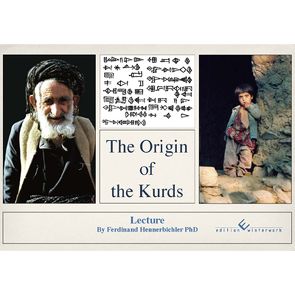
First interdisciplinary study composed by the Austrian Historian Ferdinand Hennerbichler (*1946), backed up by leading Iranist Gernot L. Windfuhr, Ann Arbor, Michigan, USA, and renowned DNA Genealogist Anatole A. Klyosov, Newton, Massachusetts, USA, concluding: forefathers of Kurds were for the most part ethnically made up of Neolithic aboriginal Northern Fertile Crescent peoples and of Indoiranian speaking emigrating elites from Central Asia. According to recent research of Palaeo/Archaeo-genetics and DNA Genealogy, forefathers of Kurds were in their earliest traceable origins mainly descendants of Near Eastern and Eurasian indigenous aboriginal peoples, predominantly oldest Neolithic farmers and shepherds who cultivated areas of the Northern Fertile Crescent ca. 10,000-5,000 B.C.E. During the last millennia B.C.E. these aboriginal Neolithic forefathers of Kurds were linguistically Indoiranianized by emigrating militarily organized elites from Central Asia in two waves: between 2,200/2,000-1,600 B.C.E., via the Russian plains into Eastern Anatolia, Northern Mesopotamia and Zagros mountain regions, and ca. 800-600 B.C.E., mainly via the Iranian Plateau into Northwest Iran of today (Anatole Klyosov). This waves of migrations contributed to multi-ethno-cultural societies of Northern Fertile Crescent aboriginal forefathers of Kurds and of militarily organized elites who came from central Asia and who obviously imposed Old-Iranian on the indigenous populations from territories of the Northwest-Iran of today. Previously, Kurds spoke an unknown assumed Proto-Non-Iranian language. Hurritian played a dominant role in Kurdistan during ca. 1,000 500 B.C.E. (Ran Zadok). The first stages of the language of Iranianized Kurds could go back to the pre-Median or pre-Achaemenid periods (Gernot Windfuhr). An earlier influence of Old-Indo-Aryan-speakers in the ancient kingdom of Mitanni during the 2nd millennium B.C.E. is disputed. The word Kurd itself could mean mountain people, frequently complemented by various attributive expressions for war-like mountaineers. Oldest roots of the term can be traced back to the Sumerian assumed word stem kur denoting various mountain peoples and lands. In cuneiform sources kur-related terms are frequently used for mountaineers who inhabited ancestral homelands, which traditionally encompassed areas stretching from Eastern Anatolia via Northern Mesopotamia to Zagros regions and eastwards into Northwest-Iran of today. Also, since the 23rd century B.C.E. existed a steady but fragile, waxing and waning continuity of kur-stem term labels characterizing various mountain people. Some of them can be convincingly and in continuity allocated to descendants of aboriginal forefathers of Kurds. In conclusion, this new book tries to prove that Kurds are an independent autochthonous people mainly from areas outside of Iran of today. The published results triggered a lively on-going scientific discussion. Reactions so far are mostly positive.
Aktualisiert: 2023-07-01
> findR *
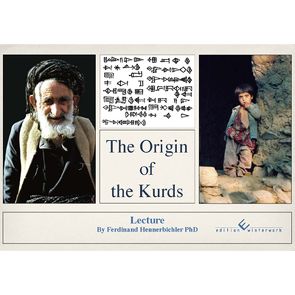
First interdisciplinary study composed by the Austrian Historian Ferdinand Hennerbichler (*1946), backed up by leading Iranist Gernot L. Windfuhr, Ann Arbor, Michigan, USA, and renowned DNA Genealogist Anatole A. Klyosov, Newton, Massachusetts, USA, concluding: forefathers of Kurds were for the most part ethnically made up of Neolithic aboriginal Northern Fertile Crescent peoples and of Indoiranian speaking emigrating elites from Central Asia. According to recent research of Palaeo/Archaeo-genetics and DNA Genealogy, forefathers of Kurds were in their earliest traceable origins mainly descendants of Near Eastern and Eurasian indigenous aboriginal peoples, predominantly oldest Neolithic farmers and shepherds who cultivated areas of the Northern Fertile Crescent ca. 10,000-5,000 B.C.E. During the last millennia B.C.E. these aboriginal Neolithic forefathers of Kurds were linguistically Indoiranianized by emigrating militarily organized elites from Central Asia in two waves: between 2,200/2,000-1,600 B.C.E., via the Russian plains into Eastern Anatolia, Northern Mesopotamia and Zagros mountain regions, and ca. 800-600 B.C.E., mainly via the Iranian Plateau into Northwest Iran of today (Anatole Klyosov). This waves of migrations contributed to multi-ethno-cultural societies of Northern Fertile Crescent aboriginal forefathers of Kurds and of militarily organized elites who came from central Asia and who obviously imposed Old-Iranian on the indigenous populations from territories of the Northwest-Iran of today. Previously, Kurds spoke an unknown assumed Proto-Non-Iranian language. Hurritian played a dominant role in Kurdistan during ca. 1,000 500 B.C.E. (Ran Zadok). The first stages of the language of Iranianized Kurds could go back to the pre-Median or pre-Achaemenid periods (Gernot Windfuhr). An earlier influence of Old-Indo-Aryan-speakers in the ancient kingdom of Mitanni during the 2nd millennium B.C.E. is disputed. The word Kurd itself could mean mountain people, frequently complemented by various attributive expressions for war-like mountaineers. Oldest roots of the term can be traced back to the Sumerian assumed word stem kur denoting various mountain peoples and lands. In cuneiform sources kur-related terms are frequently used for mountaineers who inhabited ancestral homelands, which traditionally encompassed areas stretching from Eastern Anatolia via Northern Mesopotamia to Zagros regions and eastwards into Northwest-Iran of today. Also, since the 23rd century B.C.E. existed a steady but fragile, waxing and waning continuity of kur-stem term labels characterizing various mountain people. Some of them can be convincingly and in continuity allocated to descendants of aboriginal forefathers of Kurds. In conclusion, this new book tries to prove that Kurds are an independent autochthonous people mainly from areas outside of Iran of today. The published results triggered a lively on-going scientific discussion. Reactions so far are mostly positive.
Aktualisiert: 2023-07-01
> findR *

First interdisciplinary study composed by the Austrian Historian Ferdinand Hennerbichler (*1946), backed up by leading Iranist Gernot L. Windfuhr, Ann Arbor, Michigan, USA, and renowned DNA Genealogist Anatole A. Klyosov, Newton, Massachusetts, USA, concluding: forefathers of Kurds were for the most part ethnically made up of Neolithic aboriginal Northern Fertile Crescent peoples and of Indoiranian speaking emigrating elites from Central Asia. According to recent research of Palaeo/Archaeo-genetics and DNA Genealogy, forefathers of Kurds were in their earliest traceable origins mainly descendants of Near Eastern and Eurasian indigenous aboriginal peoples, predominantly oldest Neolithic farmers and shepherds who cultivated areas of the Northern Fertile Crescent ca. 10,000-5,000 B.C.E. During the last millennia B.C.E. these aboriginal Neolithic forefathers of Kurds were linguistically Indoiranianized by emigrating militarily organized elites from Central Asia in two waves: between 2,200/2,000-1,600 B.C.E., via the Russian plains into Eastern Anatolia, Northern Mesopotamia and Zagros mountain regions, and ca. 800-600 B.C.E., mainly via the Iranian Plateau into Northwest Iran of today (Anatole Klyosov). This waves of migrations contributed to multi-ethno-cultural societies of Northern Fertile Crescent aboriginal forefathers of Kurds and of militarily organized elites who came from central Asia and who obviously imposed Old-Iranian on the indigenous populations from territories of the Northwest-Iran of today. Previously, Kurds spoke an unknown assumed Proto-Non-Iranian language. Hurritian played a dominant role in Kurdistan during ca. 1,000 500 B.C.E. (Ran Zadok). The first stages of the language of Iranianized Kurds could go back to the pre-Median or pre-Achaemenid periods (Gernot Windfuhr). An earlier influence of Old-Indo-Aryan-speakers in the ancient kingdom of Mitanni during the 2nd millennium B.C.E. is disputed. The word Kurd itself could mean mountain people, frequently complemented by various attributive expressions for war-like mountaineers. Oldest roots of the term can be traced back to the Sumerian assumed word stem kur denoting various mountain peoples and lands. In cuneiform sources kur-related terms are frequently used for mountaineers who inhabited ancestral homelands, which traditionally encompassed areas stretching from Eastern Anatolia via Northern Mesopotamia to Zagros regions and eastwards into Northwest-Iran of today. Also, since the 23rd century B.C.E. existed a steady but fragile, waxing and waning continuity of kur-stem term labels characterizing various mountain people. Some of them can be convincingly and in continuity allocated to descendants of aboriginal forefathers of Kurds. In conclusion, this new book tries to prove that Kurds are an independent autochthonous people mainly from areas outside of Iran of today. The published results triggered a lively on-going scientific discussion. Reactions so far are mostly positive.
Aktualisiert: 2023-07-01
> findR *
Die öffentliche Meinung bildet in der Moderne eine Voraussetzung für den politischen Streit. Eine Welt globaler Verflechtungen stellt diese Beziehung jedoch zunehmend vor neue Herausforderungen. Alexander Wolters' Fallstudie über die Republik Kyrgyzstan nach 2005 bietet faszinierende Einblicke in das störanfällige Verhältnis zwischen Politik und Öffentlichkeit jenseits der westlichen Welt: Die zunehmende Simulation politischer Konflikte setzt hier selbstreferentielle Prozesse in Gang, in denen Akteuren auf Dauer die Rationalität für ihr Handeln genommen wird. Dieser Befund erklärt nicht nur Entwicklungen in Zentralasien, sondern er verdeutlicht auch die generellen Strukturdefizite von Politik in Zeiten der Globalisierung.
Aktualisiert: 2023-06-23
> findR *
Die öffentliche Meinung bildet in der Moderne eine Voraussetzung für den politischen Streit. Eine Welt globaler Verflechtungen stellt diese Beziehung jedoch zunehmend vor neue Herausforderungen. Alexander Wolters' Fallstudie über die Republik Kyrgyzstan nach 2005 bietet faszinierende Einblicke in das störanfällige Verhältnis zwischen Politik und Öffentlichkeit jenseits der westlichen Welt: Die zunehmende Simulation politischer Konflikte setzt hier selbstreferentielle Prozesse in Gang, in denen Akteuren auf Dauer die Rationalität für ihr Handeln genommen wird. Dieser Befund erklärt nicht nur Entwicklungen in Zentralasien, sondern er verdeutlicht auch die generellen Strukturdefizite von Politik in Zeiten der Globalisierung.
Aktualisiert: 2023-06-23
> findR *
Die öffentliche Meinung bildet in der Moderne eine Voraussetzung für den politischen Streit. Eine Welt globaler Verflechtungen stellt diese Beziehung jedoch zunehmend vor neue Herausforderungen. Alexander Wolters' Fallstudie über die Republik Kyrgyzstan nach 2005 bietet faszinierende Einblicke in das störanfällige Verhältnis zwischen Politik und Öffentlichkeit jenseits der westlichen Welt: Die zunehmende Simulation politischer Konflikte setzt hier selbstreferentielle Prozesse in Gang, in denen Akteuren auf Dauer die Rationalität für ihr Handeln genommen wird. Dieser Befund erklärt nicht nur Entwicklungen in Zentralasien, sondern er verdeutlicht auch die generellen Strukturdefizite von Politik in Zeiten der Globalisierung.
Aktualisiert: 2023-06-23
> findR *
Die öffentliche Meinung bildet in der Moderne eine Voraussetzung für den politischen Streit. Eine Welt globaler Verflechtungen stellt diese Beziehung jedoch zunehmend vor neue Herausforderungen. Alexander Wolters' Fallstudie über die Republik Kyrgyzstan nach 2005 bietet faszinierende Einblicke in das störanfällige Verhältnis zwischen Politik und Öffentlichkeit jenseits der westlichen Welt: Die zunehmende Simulation politischer Konflikte setzt hier selbstreferentielle Prozesse in Gang, in denen Akteuren auf Dauer die Rationalität für ihr Handeln genommen wird. Dieser Befund erklärt nicht nur Entwicklungen in Zentralasien, sondern er verdeutlicht auch die generellen Strukturdefizite von Politik in Zeiten der Globalisierung.
Aktualisiert: 2023-06-23
> findR *
Die öffentliche Meinung bildet in der Moderne eine Voraussetzung für den politischen Streit. Eine Welt globaler Verflechtungen stellt diese Beziehung jedoch zunehmend vor neue Herausforderungen. Alexander Wolters' Fallstudie über die Republik Kyrgyzstan nach 2005 bietet faszinierende Einblicke in das störanfällige Verhältnis zwischen Politik und Öffentlichkeit jenseits der westlichen Welt: Die zunehmende Simulation politischer Konflikte setzt hier selbstreferentielle Prozesse in Gang, in denen Akteuren auf Dauer die Rationalität für ihr Handeln genommen wird. Dieser Befund erklärt nicht nur Entwicklungen in Zentralasien, sondern er verdeutlicht auch die generellen Strukturdefizite von Politik in Zeiten der Globalisierung.
Aktualisiert: 2023-06-23
> findR *
Die öffentliche Meinung bildet in der Moderne eine Voraussetzung für den politischen Streit. Eine Welt globaler Verflechtungen stellt diese Beziehung jedoch zunehmend vor neue Herausforderungen. Alexander Wolters' Fallstudie über die Republik Kyrgyzstan nach 2005 bietet faszinierende Einblicke in das störanfällige Verhältnis zwischen Politik und Öffentlichkeit jenseits der westlichen Welt: Die zunehmende Simulation politischer Konflikte setzt hier selbstreferentielle Prozesse in Gang, in denen Akteuren auf Dauer die Rationalität für ihr Handeln genommen wird. Dieser Befund erklärt nicht nur Entwicklungen in Zentralasien, sondern er verdeutlicht auch die generellen Strukturdefizite von Politik in Zeiten der Globalisierung.
Aktualisiert: 2023-06-23
> findR *
Die öffentliche Meinung bildet in der Moderne eine Voraussetzung für den politischen Streit. Eine Welt globaler Verflechtungen stellt diese Beziehung jedoch zunehmend vor neue Herausforderungen. Alexander Wolters' Fallstudie über die Republik Kyrgyzstan nach 2005 bietet faszinierende Einblicke in das störanfällige Verhältnis zwischen Politik und Öffentlichkeit jenseits der westlichen Welt: Die zunehmende Simulation politischer Konflikte setzt hier selbstreferentielle Prozesse in Gang, in denen Akteuren auf Dauer die Rationalität für ihr Handeln genommen wird. Dieser Befund erklärt nicht nur Entwicklungen in Zentralasien, sondern er verdeutlicht auch die generellen Strukturdefizite von Politik in Zeiten der Globalisierung.
Aktualisiert: 2023-06-16
> findR *
Die öffentliche Meinung bildet in der Moderne eine Voraussetzung für den politischen Streit. Eine Welt globaler Verflechtungen stellt diese Beziehung jedoch zunehmend vor neue Herausforderungen. Alexander Wolters' Fallstudie über die Republik Kyrgyzstan nach 2005 bietet faszinierende Einblicke in das störanfällige Verhältnis zwischen Politik und Öffentlichkeit jenseits der westlichen Welt: Die zunehmende Simulation politischer Konflikte setzt hier selbstreferentielle Prozesse in Gang, in denen Akteuren auf Dauer die Rationalität für ihr Handeln genommen wird. Dieser Befund erklärt nicht nur Entwicklungen in Zentralasien, sondern er verdeutlicht auch die generellen Strukturdefizite von Politik in Zeiten der Globalisierung.
Aktualisiert: 2023-06-16
> findR *
Die öffentliche Meinung bildet in der Moderne eine Voraussetzung für den politischen Streit. Eine Welt globaler Verflechtungen stellt diese Beziehung jedoch zunehmend vor neue Herausforderungen. Alexander Wolters' Fallstudie über die Republik Kyrgyzstan nach 2005 bietet faszinierende Einblicke in das störanfällige Verhältnis zwischen Politik und Öffentlichkeit jenseits der westlichen Welt: Die zunehmende Simulation politischer Konflikte setzt hier selbstreferentielle Prozesse in Gang, in denen Akteuren auf Dauer die Rationalität für ihr Handeln genommen wird. Dieser Befund erklärt nicht nur Entwicklungen in Zentralasien, sondern er verdeutlicht auch die generellen Strukturdefizite von Politik in Zeiten der Globalisierung.
Aktualisiert: 2023-06-16
> findR *
Die öffentliche Meinung bildet in der Moderne eine Voraussetzung für den politischen Streit. Eine Welt globaler Verflechtungen stellt diese Beziehung jedoch zunehmend vor neue Herausforderungen. Alexander Wolters' Fallstudie über die Republik Kyrgyzstan nach 2005 bietet faszinierende Einblicke in das störanfällige Verhältnis zwischen Politik und Öffentlichkeit jenseits der westlichen Welt: Die zunehmende Simulation politischer Konflikte setzt hier selbstreferentielle Prozesse in Gang, in denen Akteuren auf Dauer die Rationalität für ihr Handeln genommen wird. Dieser Befund erklärt nicht nur Entwicklungen in Zentralasien, sondern er verdeutlicht auch die generellen Strukturdefizite von Politik in Zeiten der Globalisierung.
Aktualisiert: 2023-06-16
> findR *
Die öffentliche Meinung bildet in der Moderne eine Voraussetzung für den politischen Streit. Eine Welt globaler Verflechtungen stellt diese Beziehung jedoch zunehmend vor neue Herausforderungen. Alexander Wolters' Fallstudie über die Republik Kyrgyzstan nach 2005 bietet faszinierende Einblicke in das störanfällige Verhältnis zwischen Politik und Öffentlichkeit jenseits der westlichen Welt: Die zunehmende Simulation politischer Konflikte setzt hier selbstreferentielle Prozesse in Gang, in denen Akteuren auf Dauer die Rationalität für ihr Handeln genommen wird. Dieser Befund erklärt nicht nur Entwicklungen in Zentralasien, sondern er verdeutlicht auch die generellen Strukturdefizite von Politik in Zeiten der Globalisierung.
Aktualisiert: 2023-06-16
> findR *
Die öffentliche Meinung bildet in der Moderne eine Voraussetzung für den politischen Streit. Eine Welt globaler Verflechtungen stellt diese Beziehung jedoch zunehmend vor neue Herausforderungen. Alexander Wolters' Fallstudie über die Republik Kyrgyzstan nach 2005 bietet faszinierende Einblicke in das störanfällige Verhältnis zwischen Politik und Öffentlichkeit jenseits der westlichen Welt: Die zunehmende Simulation politischer Konflikte setzt hier selbstreferentielle Prozesse in Gang, in denen Akteuren auf Dauer die Rationalität für ihr Handeln genommen wird. Dieser Befund erklärt nicht nur Entwicklungen in Zentralasien, sondern er verdeutlicht auch die generellen Strukturdefizite von Politik in Zeiten der Globalisierung.
Aktualisiert: 2023-06-09
> findR *
Die öffentliche Meinung bildet in der Moderne eine Voraussetzung für den politischen Streit. Eine Welt globaler Verflechtungen stellt diese Beziehung jedoch zunehmend vor neue Herausforderungen. Alexander Wolters' Fallstudie über die Republik Kyrgyzstan nach 2005 bietet faszinierende Einblicke in das störanfällige Verhältnis zwischen Politik und Öffentlichkeit jenseits der westlichen Welt: Die zunehmende Simulation politischer Konflikte setzt hier selbstreferentielle Prozesse in Gang, in denen Akteuren auf Dauer die Rationalität für ihr Handeln genommen wird. Dieser Befund erklärt nicht nur Entwicklungen in Zentralasien, sondern er verdeutlicht auch die generellen Strukturdefizite von Politik in Zeiten der Globalisierung.
Aktualisiert: 2023-06-09
> findR *
Die öffentliche Meinung bildet in der Moderne eine Voraussetzung für den politischen Streit. Eine Welt globaler Verflechtungen stellt diese Beziehung jedoch zunehmend vor neue Herausforderungen. Alexander Wolters' Fallstudie über die Republik Kyrgyzstan nach 2005 bietet faszinierende Einblicke in das störanfällige Verhältnis zwischen Politik und Öffentlichkeit jenseits der westlichen Welt: Die zunehmende Simulation politischer Konflikte setzt hier selbstreferentielle Prozesse in Gang, in denen Akteuren auf Dauer die Rationalität für ihr Handeln genommen wird. Dieser Befund erklärt nicht nur Entwicklungen in Zentralasien, sondern er verdeutlicht auch die generellen Strukturdefizite von Politik in Zeiten der Globalisierung.
Aktualisiert: 2023-06-02
> findR *
MEHR ANZEIGEN
Bücher zum Thema Central Asia
Sie suchen ein Buch über Central Asia? Bei Buch findr finden Sie eine große Auswahl Bücher zum
Thema Central Asia. Entdecken Sie neue Bücher oder Klassiker für Sie selbst oder zum Verschenken. Buch findr
hat zahlreiche Bücher zum Thema Central Asia im Sortiment. Nehmen Sie sich Zeit zum Stöbern und finden Sie das
passende Buch für Ihr Lesevergnügen. Stöbern Sie durch unser Angebot und finden Sie aus unserer großen Auswahl das
Buch, das Ihnen zusagt. Bei Buch findr finden Sie Romane, Ratgeber, wissenschaftliche und populärwissenschaftliche
Bücher uvm. Bestellen Sie Ihr Buch zum Thema Central Asia einfach online und lassen Sie es sich bequem nach
Hause schicken. Wir wünschen Ihnen schöne und entspannte Lesemomente mit Ihrem Buch.
Central Asia - Große Auswahl Bücher bei Buch findr
Bei uns finden Sie Bücher beliebter Autoren, Neuerscheinungen, Bestseller genauso wie alte Schätze. Bücher zum
Thema Central Asia, die Ihre Fantasie anregen und Bücher, die Sie weiterbilden und Ihnen wissenschaftliche
Fakten vermitteln. Ganz nach Ihrem Geschmack ist das passende Buch für Sie dabei. Finden Sie eine große Auswahl
Bücher verschiedenster Genres, Verlage, Autoren bei Buchfindr:
Sie haben viele Möglichkeiten bei Buch findr die passenden Bücher für Ihr Lesevergnügen zu entdecken. Nutzen Sie
unsere Suchfunktionen, um zu stöbern und für Sie interessante Bücher in den unterschiedlichen Genres und Kategorien
zu finden. Unter Central Asia und weitere Themen und Kategorien finden Sie schnell und einfach eine Auflistung
thematisch passender Bücher. Probieren Sie es aus, legen Sie jetzt los! Ihrem Lesevergnügen steht nichts im Wege.
Nutzen Sie die Vorteile Ihre Bücher online zu kaufen und bekommen Sie die bestellten Bücher schnell und bequem
zugestellt. Nehmen Sie sich die Zeit, online die Bücher Ihrer Wahl anzulesen, Buchempfehlungen und Rezensionen zu
studieren, Informationen zu Autoren zu lesen. Viel Spaß beim Lesen wünscht Ihnen das Team von Buchfindr.






